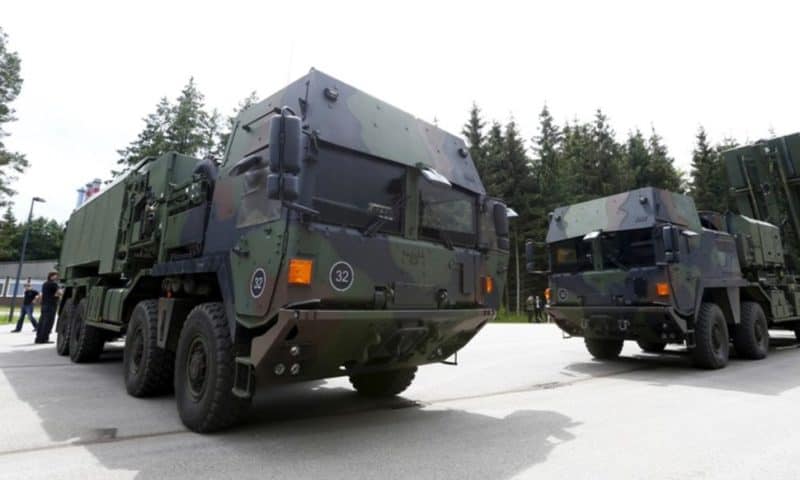BERLIN – The U.S. government has approved integration of the U.S. Patriot PAC-3 MSE missile into a next-generation German missile defense system, a spokesman said on Friday, a key step toward completion of a long-delayed multibillion-dollar arms sale.
The decision followed high-level talks by German Defence Minister Ursula von der Leyen and U.S. Defense Secretary Jim Mattis this summer, two sources familiar with the issue said.
Germany selected the Medium Extended Air Defence System (MEADS) built by Lockheed Martin Corp and European missile maker MBDA over Raytheon’s Patriot air and missile defense system in 2015, but it has taken years to move forward on the new defensive system called TLVS.
U.S. Air Force Col. Mike Andrews, the Pentagon spokesman, confirmed the use of the MSE missile had been approved for use in the German program, but gave no further details.
“This is a significant step forward. The impasse has been solved,” said one of the sources, who was not authorized to speak publicly.
Lockheed, the top U.S. weapons maker, and MBDA gave no details, but said they were upbeat that the program was moving forward. MBDA is jointly owned by Airbus, Britain’s BAE Systems and Italy’s Leonardo.
A spokesman at the German defense ministry gave no details, but said both the U.S. and German sides were committed to signing a contract. “There is new momentum. Both sides are clearly committed to successful completion of the TLVS program,” the spokesman said.
Germany’s defense ministry in August asked Lockheed and MBDA to submit a best and final offer for the program, but that required U.S. government approval of the integration of the PAC-3 MSE missile, one of the sources said.
Lockheed, which developed the MEADS program together with MBDA, also builds the PAC-3 Missile Segment Enhancement missile, but needed approval for its integration into German program since the missile was developed separately from MEADS.
The MEADS system was developed with $4 billion in funding from Germany, Italy and the United States, although the U.S. Army later ended its participation in the program.
Germany hopes to sign a contract for TLVS in 2019 and field the system in 2025.
MBDA and Lockheed executives have said progress on the German deal could fuel interest by other countries in the system, which will offer the ability to knit together a variety of different systems, including Patriot.
Initially slated to cost about 4 billion euros ($4.56 billion), sources say the final cost of the TLVS system is likely to be several billion euros higher.

